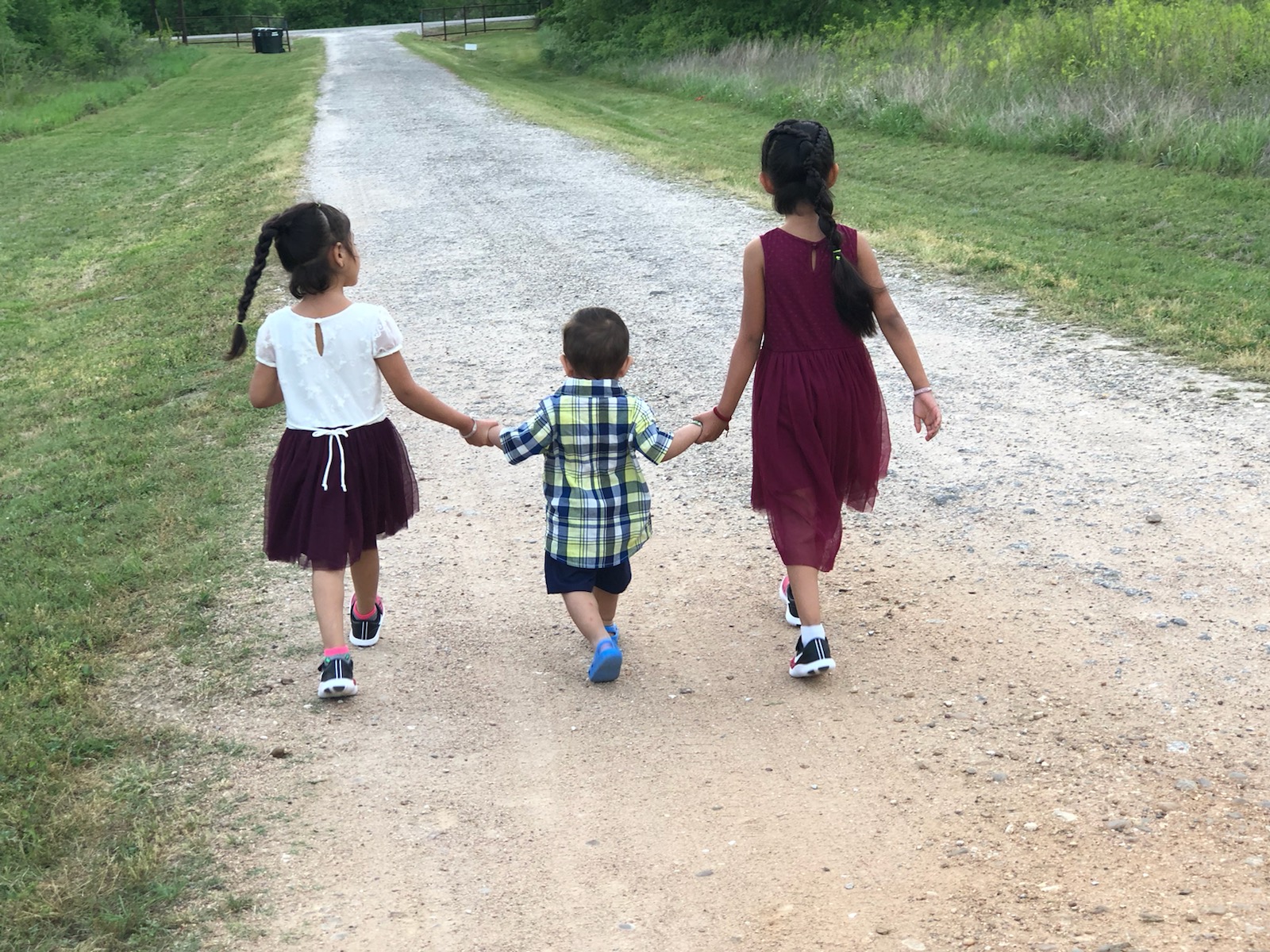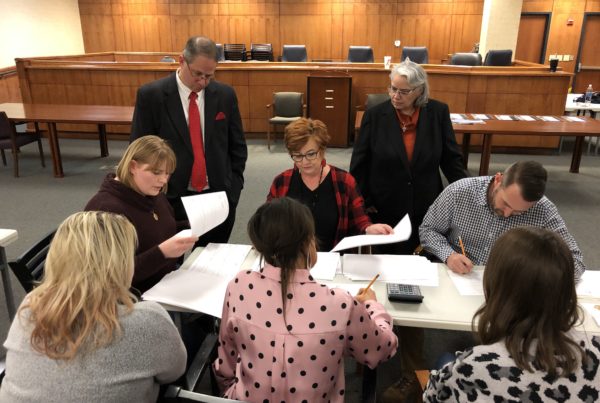Up until now, the story of family separation has been the story of immigrant parents who are apprehended at the U.S. border and detained in facilities separate from where their children are kept.
But there is another ongoing story of family separation that affects American children, like the story of the Angel family of Central Texas.
The Texas Standard is not using the family’s last name for fear of deportation. We are only using the father’s first name because his story includes a detention, a deportation, a kidnapping and an illegal return into the United States. The family is fearful of another deportation.
William Lopez, a researcher at the University of Michigan School of Public Health, describes families like the Angels as “mixed status,” meaning a family that varies in immigration statuses. Lopez says “that usually means an undocumented parent of citizen children.”
In this family, 29-year-old Angel is the parent who is unauthorized to live and work in the United States. He was born in Mexico, but his 24–year-old wife, Rosy, is an American. Their children are Americans, too.
Angel and Rosy are the proud parents of three little Texans they call “God’s gift.”
When Angel and Rosy met, they were teenagers using the legacy social media network MySpace. Back then, they never would have imagined what life had in store for 2019, their most trying year.
The challenges started early. One day last year, Angel was driving to the construction site he supervises and got stopped by a police officer. He showed the officer the fake documents he uses for work and got arrested.
It is very common for unauthorized immigrants to obtain fake IDs such as driver’s licenses in order to live and work in the United States. Angel was no exception. Even though he is married to an American, it is almost impossible for people like him to obtain legal status because he originally entered the country illegally.
Rosy knew this going into the marriage. But she was young and in love and just hoped Angel would never get arrested. When he did, she knew how the story would end. Or, at least, she knew he would be deported.
But knowing didn’t make things easier. Angel’s deportation was very traumatic for everyone in the family, but specially for the children.
And the deportation wasn’t automatic. Angel was in detention in San Antonio for six months. During that time, Rosy would bring the kids for visits; they could see Angel, “but they couldn’t touch him,” Rosy says. Rosy becomes emotional as she remembers this period of 2019. “They are treated like criminals,” she says, as she wipes away her tears.
The kids were emotional, too. Dr. Lopez says few people have studied the effects of deportations on American children. But he has.
“You can imagine growing up with this fear that every time your dad or your mother drives away that may be the last time you see them,” Lopez says. “It’s very damaging, psychologically.”
Rosy remembers the kids also showed physical signs of their emotional stress. They complained about headaches and cried a lot. Rosy also showed signs of depression. But she had no money or time to care for herself.
The family went from being a two-income household to one income. And Angel was the family’s highest earner, so Rosy’s sources of stress were many, including the finances. She worked two shifts during the week and one during weekends.
After the six months in detention, and like thousands of other people every year, the government deported Angel back to Mexico. Shortly after being dropped in Nuevo Laredo, just across the border from Laredo, Texas, he was kidnapped – a common practice of many Mexican cartels that target people with relatives in the United States and hold them until ransom is paid.
But Rosy couldn’t pay. She tried to come up with the thousands of dollars the kidnappers demanded but came up short, even after asking for money from family and friends. Rosy knew that without payment, her husband could get killed, and that sunk her into a deep depression. She couldn’t stop crying and lived with a piercing headache. But paying the ransom was “beyond her control,” she says.
It was hard, but Rosy decided to move and try to focus solely on the children’s well-being.
Meanwhile, in Mexico, Angel went through his own ordeal. He, too, was broken-hearted and fearful. He, too, thought he’d lose his life.
One day, he decided to escape. Since he was kept with other victims, and they were constantly moved from one place to the next, Angel decided to use the next move for his escape. Angel says they were loaded into an 18-wheeler “with 96 other people.” It wasn’t easy, but he got away as they were unloading.
Angel took refuge in a church. From there, he was able to call his boss back in Texas and was able to tell him the whole story. Angel also told his boss he needed $10,000 to hire a smuggler, or “coyote,” to come home.
When Angel called Rosy to tell her he was heading back to Texas she couldn’t believe it.
“It was like I was basically dreaming,” Rosy says. “It was unreal.”
Angel was nervous and didn’t know what to expect upon his return. Would Rosy still be waiting for him? What if she had met someone else? Would the kids remember him? After all, it had been almost a full year since his family had seen him. The baby had been 1 year old.
But at the church where he was hiding, the bells started chiming, and they calmed him down. They reminded him of his wedding day and of his vows that he repeated in Spanish: “Lo que unió Dios, no lo separará el hombre,” which translates to: “Let no one separate what God has joined together.”
Angel knows it is against the law to cross the border without documentation. But he felt no law could separate him from his family.
Angel is back in the U.S. He is working construction with his former boss, and his family is healing from the separation. But there are some emotional scars that will never go away. Rosy says their children “are not going to forget this.”















